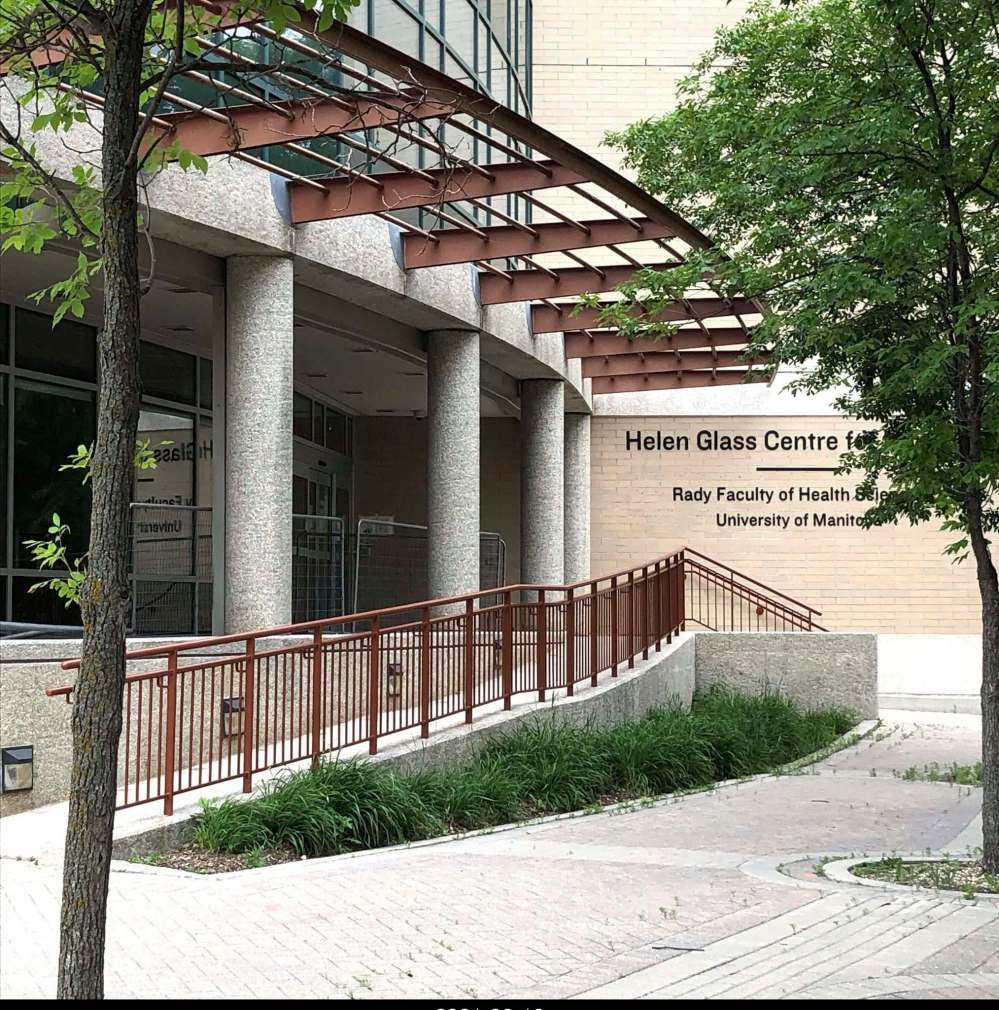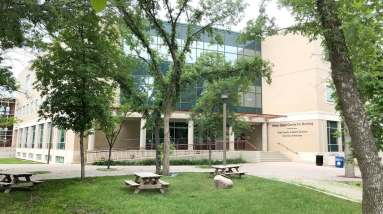Post-secondary institutions concerned after province demands nursing enrolment skyrocket
Read this article for free:
or
Already have an account? Log in here »
To continue reading, please subscribe:
Monthly Digital Subscription
$0 for the first 4 weeks*
- Enjoy unlimited reading on winnipegfreepress.com
- Read the E-Edition, our digital replica newspaper
- Access News Break, our award-winning app
- Play interactive puzzles
*No charge for 4 weeks then price increases to the regular rate of $19.00 plus GST every four weeks. Offer available to new and qualified returning subscribers only. Cancel any time.
Monthly Digital Subscription
$4.75/week*
- Enjoy unlimited reading on winnipegfreepress.com
- Read the E-Edition, our digital replica newspaper
- Access News Break, our award-winning app
- Play interactive puzzles
*Billed as $19 plus GST every four weeks. Cancel any time.
To continue reading, please subscribe:
Add Free Press access to your Brandon Sun subscription for only an additional
$1 for the first 4 weeks*
*Your next subscription payment will increase by $1.00 and you will be charged $16.99 plus GST for four weeks. After four weeks, your payment will increase to $23.99 plus GST every four weeks.
Read unlimited articles for free today:
or
Already have an account? Log in here »
Hey there, time traveller!
This article was published 16/06/2021 (1637 days ago), so information in it may no longer be current.
A senator who represents nursing instructors at the University of Manitoba is raising red flags about a provincial directive to colleges to expand their enrolment to graduate more nurses as soon as possible.
Prior to a meeting Wednesday, Genevieve Thompson, an associate professor of nursing, sent her colleagues a series of questions for the senate’s chairperson related to concerns about institutional autonomy and the future quality of nursing education.
“In our view, it is deeply troubling and extremely problematic that the current provincial government is directing the university to significantly alter its approach to nursing education without regard to the impact of such changes on the quality of our program, on our students or on the faculty members who teach them,” wrote Thompson.
Last month, government officials asked universities and colleges with nursing programs to draw up blueprints to scale up their respective admissions — a request that was made along with a promise of additional funding.
The province indicated it wants to see 200 new nursing seats made available across various university and college programs.

Institutions were given a matter of days to prepare draft pitches on how to meet that figure.
“The proposal was a little bit atypical of how we do things,” said Michael Benarroch, U of M president and senate chairman, during a virtual public meeting Wednesday.
Answering questions about institutional autonomy and due process in altering programs, Benarroch said he has made clear to the province that the expansion proposal will have to be vetted and green-lit through internal channels before it is approved.
Benarroch also spoke Wednesday about how there have long been conversations between post-secondary institutes and the provincial government about the nursing shortage, which he said is expected to worsen.
Being home to the largest nursing college in Manitoba, U of M should be at the forefront of expansion, with adequate additional funding to support high quality training, he told the senate.
“In our view, it is deeply troubling and extremely problematic that the current provincial government is directing the university to significantly alter its approach to nursing education without regard to the impact of such changes on the quality of our program, on our students or on the faculty members who teach them.” – Senator Genevieve Thompson
U of M, which accepts approximately 280 bachelor of nursing candidates between Winnipeg, the Pas and Thompson annually, has submitted an informal plan to create 120 new seats.
The school’s proposal considers significant restructuring to introduce a three-term system in order to move from two intakes to three annually, and condense the current 4.5-year program into 3.5 years.
On Wednesday evening, Thompson told the Free Press faculty members are curious about the timing of the proposal since nursing vacancies are not a new issue that simply arose during the pandemic.
Last week, the Manitoba Nurses’ Union announced its membership had voted overwhelmingly in favour of a strike amid a contentious stalemate in bargaining. The union declined to comment on the nursing college program expansion proposals Wednesday.
Among her concerns about the proposal and how it has played out include the fact instructors were not consulted about it, time earmarked for research could be affected by changes, and PhD-trained nurses who could staff an expansion are “few and far between.”
In a statement Wednesday, Wayne Ewasko, minister of advanced education, said his department has been working with post-secondary partners to support their needs, the needs of students, and the needs of the province in both a pandemic and post-pandemic world.
Benarroch said Wednesday the university has requested the province confirm what resources are available by Sept. 1 so its proposal can be reviewed throughout the upcoming school year, with a goal of adding more seats in summer 2023.
In a statement Wednesday, Wayne Ewasko, minister of advanced education, said his department has been working with post-secondary partners to support their needs, the needs of students, and the needs of the province in both a pandemic and post-pandemic world.
Ewasko said discussions on how to build a “healthier community” are ongoing and more information on nursing program expansion will be provided at a later date.
Ahead of the 2019-20 school year, Red River College received approval from the province to cut admissions for its registered nursing program by 75 seats. At the time, a spokesperson for the college said adjusting program capacity is part of routine operations to support industry while operating in “a fiscally responsible manner.”
Red River did not provide an estimate for potential enrolment expansion Wednesday, saying it is too early to get into specifics.
Brandon has pitched adding a combined 32 seats to nursing and psychiatric nursing programs, while the Université de Saint-Boniface has suggested a hike of 15 seats for its related offerings.
The University College of the North said Wednesday it could approximately triple its annual practical nursing graduate figure of 12.
maggie.macintosh@freepress.mb.ca
Twitter: @macintoshmaggie

Maggie Macintosh reports on education for the Winnipeg Free Press. Funding for the Free Press education reporter comes from the Government of Canada through the Local Journalism Initiative.
Our newsroom depends on a growing audience of readers to power our journalism. If you are not a paid reader, please consider becoming a subscriber.
Our newsroom depends on its audience of readers to power our journalism. Thank you for your support.





.jpg?h=215)


1.jpg?h=215)